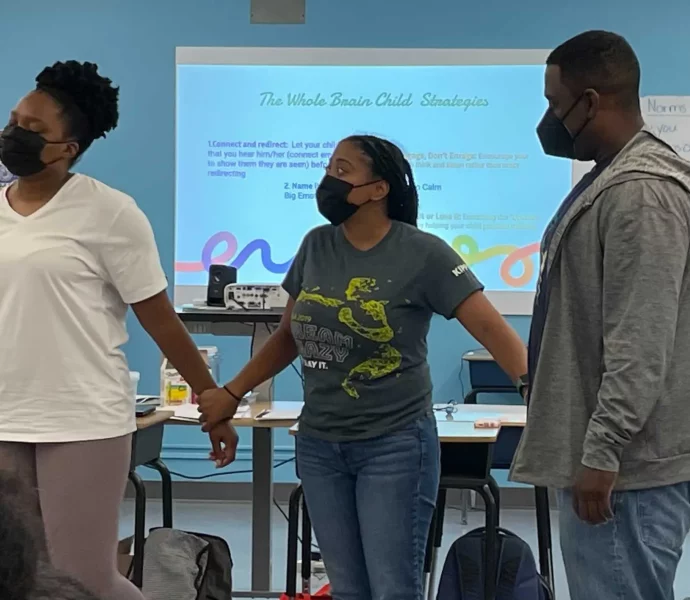‘Spirit Loss’: How K-5 Teachers Prep For a Class Shaped by COVID
By Catherine Carrera
The Newark elementary school teachers gathered in a large circle at the center of a classroom, where student desks lined the perimeter and a makeshift sign on one wall read, in part, “Step up, step back and create a safe space.”
It was time for “morning check-in.”
One by one, on this Friday morning in August, they shared their feelings.
Some were happy to be wrapping up a second week of professional development. Others were excited for the weekend. A few were feeling tense from a difficult morning at home. Between each turn, the rest of the group would share words of encouragement or validation.
“We’re happy for you.”
“Thank you for sharing and being here with us.”
“We see you. We hear you.”
The ritual was part of a day of professional development for the teachers of KIPP Truth Academy, the charter school system’s newest K-4 school in Newark.
The morning check-in, which the teachers plan to incorporate in their classroom routines this year, is meant to create an intentional safe space and time to share feelings, offer compassion, and establish a welcoming environment.
In Newark, as in schools across the country, elementary school educators have been preparing for how to best help their youngest students transition to being in the classroom on a full-time basis for the very first time or first time in 17 months. While the pandemic continues to be a threat to their own health and that of their families, many students are carrying into the classroom the experience of facing a crisis at home spurred by COVID and other traumatic events.
As back to school season gets underway, a rise in the highly contagious Delta variant has caused more anxiety and fear in school communities. Gov. Phil Murphy has mandated universal masking in schools, as has Newark Superintendent Roger León for the city’s schools, and a state order requiring vaccinations for educators is expected to be announced soon.
Most charter school students in the city returned to school this month, while Newark public school students await their first day of school on Sept. 7.
For the first time in nearly a year and a half, students in New Jersey won’t have a remote or hybrid option for instruction, and they’ll need to be in school full-time, under Murphy’s orders. In the midst of an ongoing health crisis, elementary school educators plan to focus on addressing the social and emotional needs of their students.
Read the full article here.
